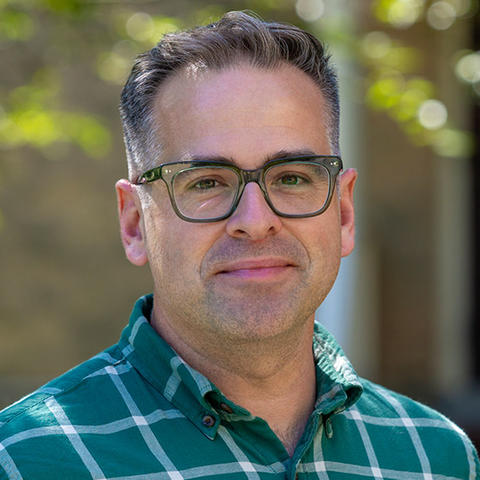Haverford Receives Department of Education Grant to Support Student Belonging, Data Analysis

Photo by Patrick Montero.
Details
The $2.25 million grant, provided through Title III, advances critical initiatives outlined in Haverford 2030, the College’s bold strategic plan.
Haverford College has received a $2.25 million Title III grant from the Department of Education (DOE) to support the College in its quest to foster a more robust culture of data-driven decision-making and bolster the development and expansion of initiatives that support inclusion, diversity, equity, access, and belonging. Title III, a federally funded program, helps institutions of higher education better serve students through funds that strengthen eligible institutions’ academic quality, institutional management, and fiscal stability.
Spanning the next five years, the DOE funds will serve as the foundation for an ambitious new project, Uplift, which aims to improve targeted data analysis across campus while simultaneously boosting graduation rates by 3.5% and fall-to-fall retention among first-year students by 2%.
Like many of its peer institutions, Haverford employs multiple bespoke data systems that track crucial information about students, staff, faculty, alumni, and donors. While each of these systems plays a central role in the College’s daily operations and each offers significant benefits, agile communication between different platforms is a challenge, while access to detailed reporting often requires esoteric knowledge and training.
A central component of Uplift is the implementation of a new integrated data solution from the consulting firm EAB called Edify that will house and govern the vast majority of the College’s enterprise data. Its implementation, stewarded by Haverford’s Instructional and Information Technology Services and Office of Institutional Research, will simplify the flow of information across systems and provide an enhanced visualization and analytics tool to support data-informed decisions.
“This grant maps beautifully onto the work the College has been engaged in to address data and analytics needs across campus,” says Megan Fitch, Haverford’s chief information officer. “Consistent with our strategic data goals in Haverford 2030, these funds will assist Haverford in facilitating better integration of systems that will, in turn, develop our institutional capacity, technically and culturally, to ask and answer data-informed questions, conduct high-quality assessments, and ensure that we are fulfilling our promises to students.”
In addition to data infrastructure, Uplift will support several other strategic priorities outlined in Haverford 2030, the College’s strategic plan. The grant will fund a full-time case manager to provide more hands-on support for students and complement the work of counselors and staff in the dean’s office. Similarly, the College will explore ways to strengthen academic advising led by a collaborative team of faculty facilitated by the Provost’s Office in partnership with the Office of the Dean of the College.
“A significant part of this work will be building the theoretical construct of what we mean by ‘belonging,’” says Vice President and Chief of Staff Jesse Lytle of the importance of Uplift. “We know that students need to feel a sense of belonging in order to be academically successful in college and for Haverford to be successful as an educational institution. But how can we understand, across an entire population of students, the extent to which we are succeeding or not in creating the conditions in which students can thrive?”
Access to valuable pre-professional, creative, and research experiences is a key component of a Haverford education, but the College does not currently possess a system to effectively track internships and other similar opportunities. In addition, numerous funds are managed by separate departments and centers, which makes student access harder and administrative coordination a challenge. Uplift will support the College’s efforts to make paid internships more accessible by integrating all such opportunities into a single system and, where possible, combine disparate internship applications into a single comprehensive application.
Across all five years of the grant, Uplift will pilot a Mentored Career Development Award to promote faculty diversity among pre-tenure faculty. Awards of $3,500 will support the pairing of faculty with a senior scholar from outside Haverford’s community for mentorship and collaboration. Applications from under-represented faculty — BIPOC, LGBTQIA+, or first-generation — will be enthusiastically welcomed.
“This is an essential challenge for colleges nationwide, and we are excited not only to learn about how we can better support Haverford students but also to help liberal arts education evolve smartly to meet the needs of future generations of students,” Lytle says. “We are grateful for the support of the U.S. Department of Education as we undertake this important work.”




